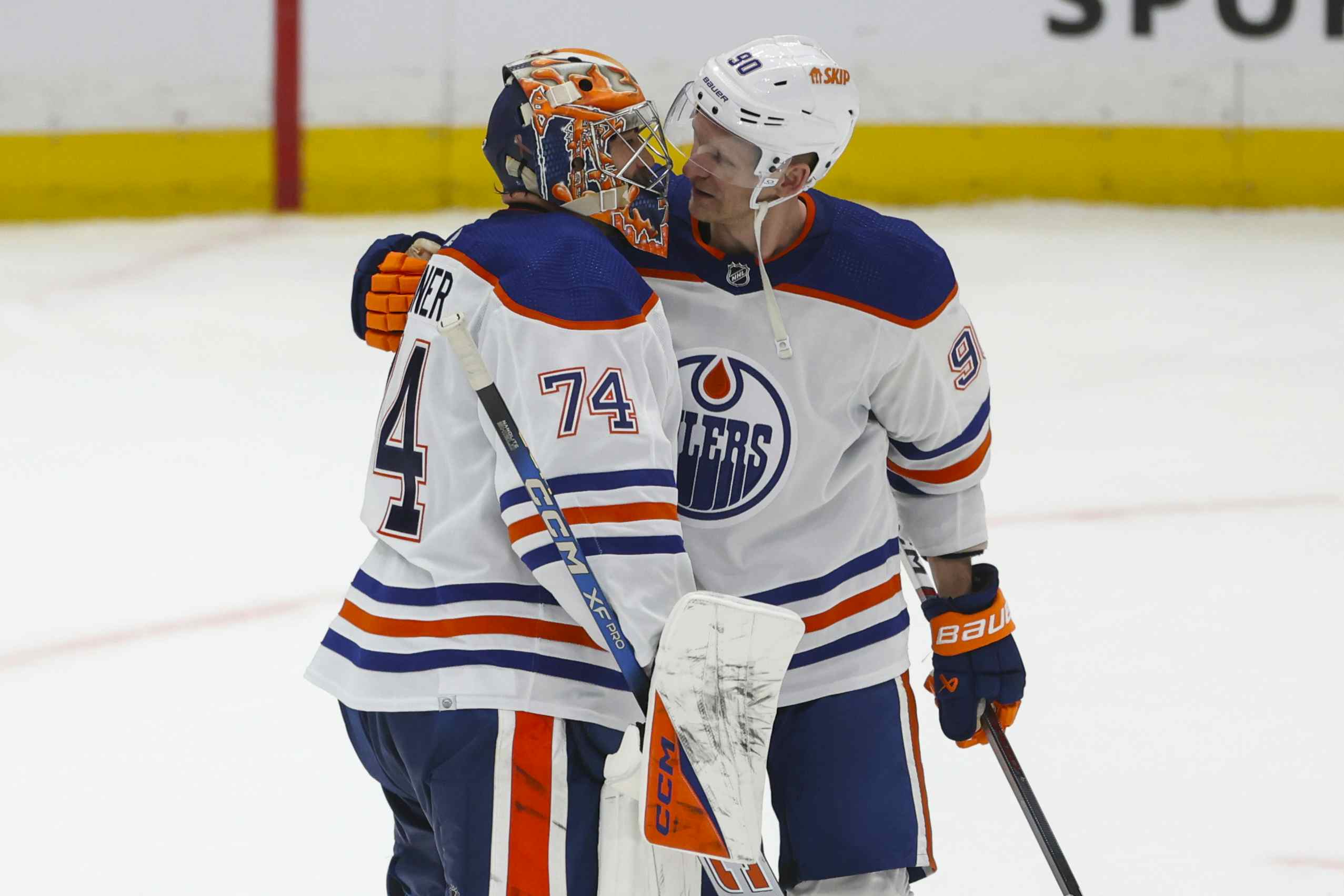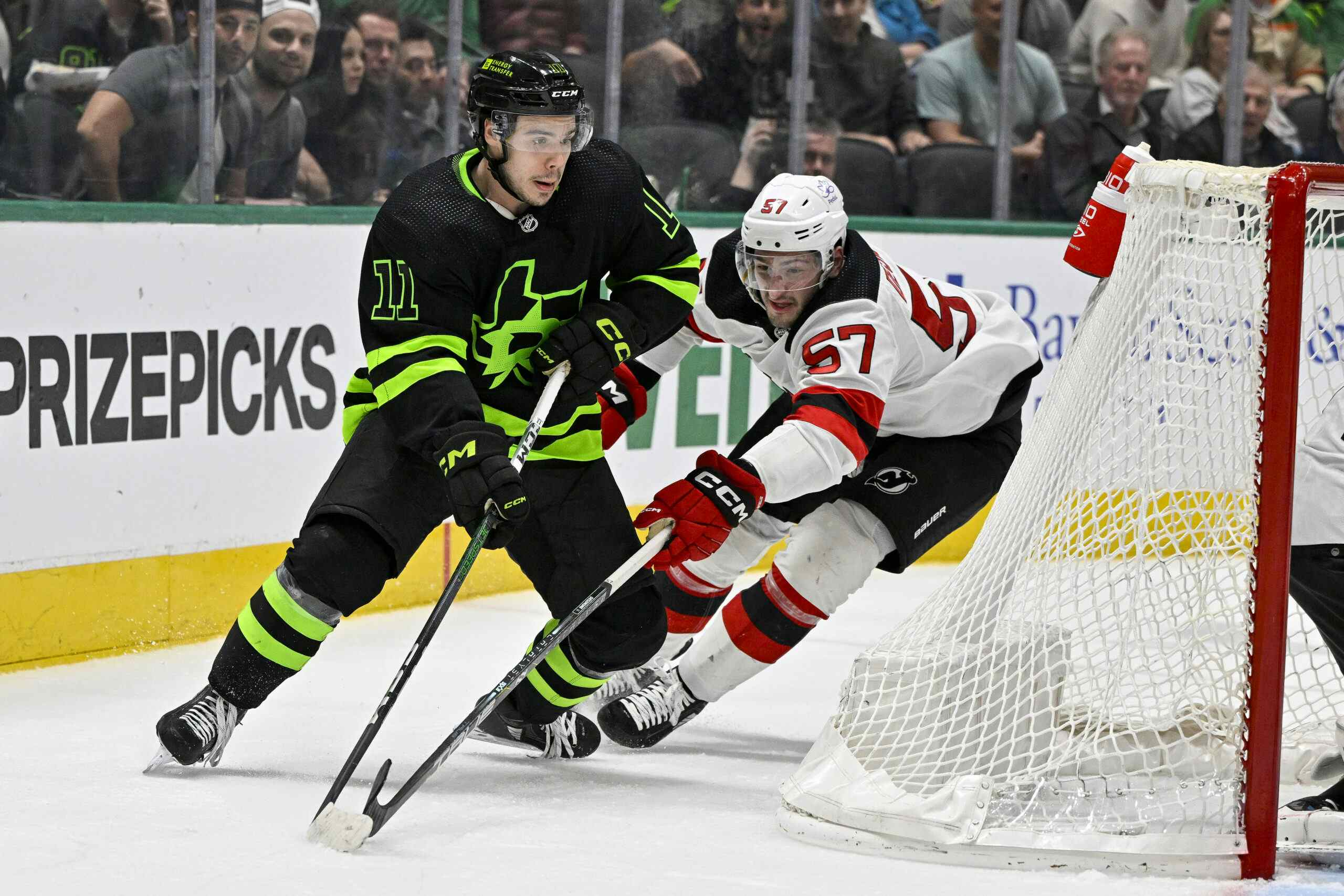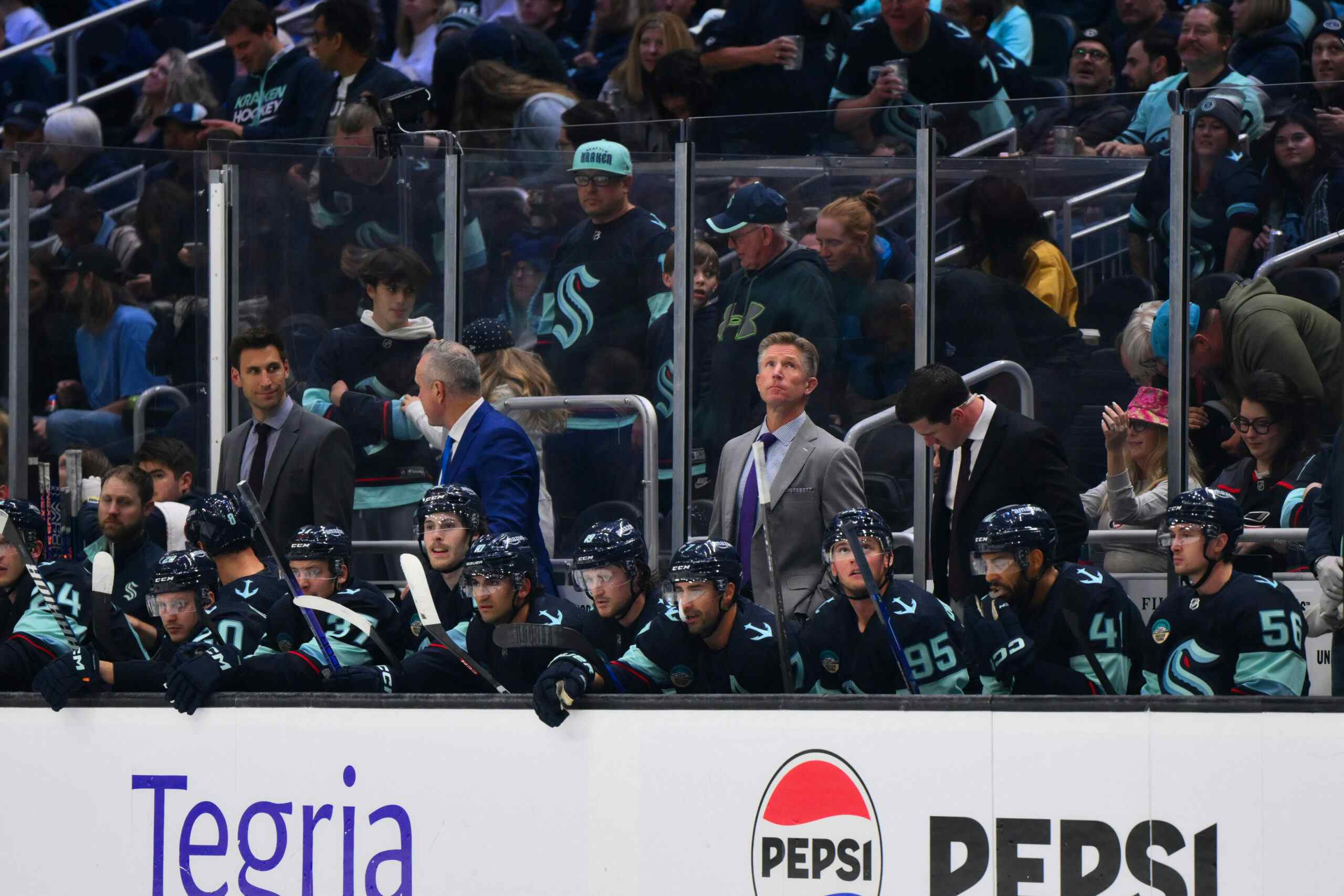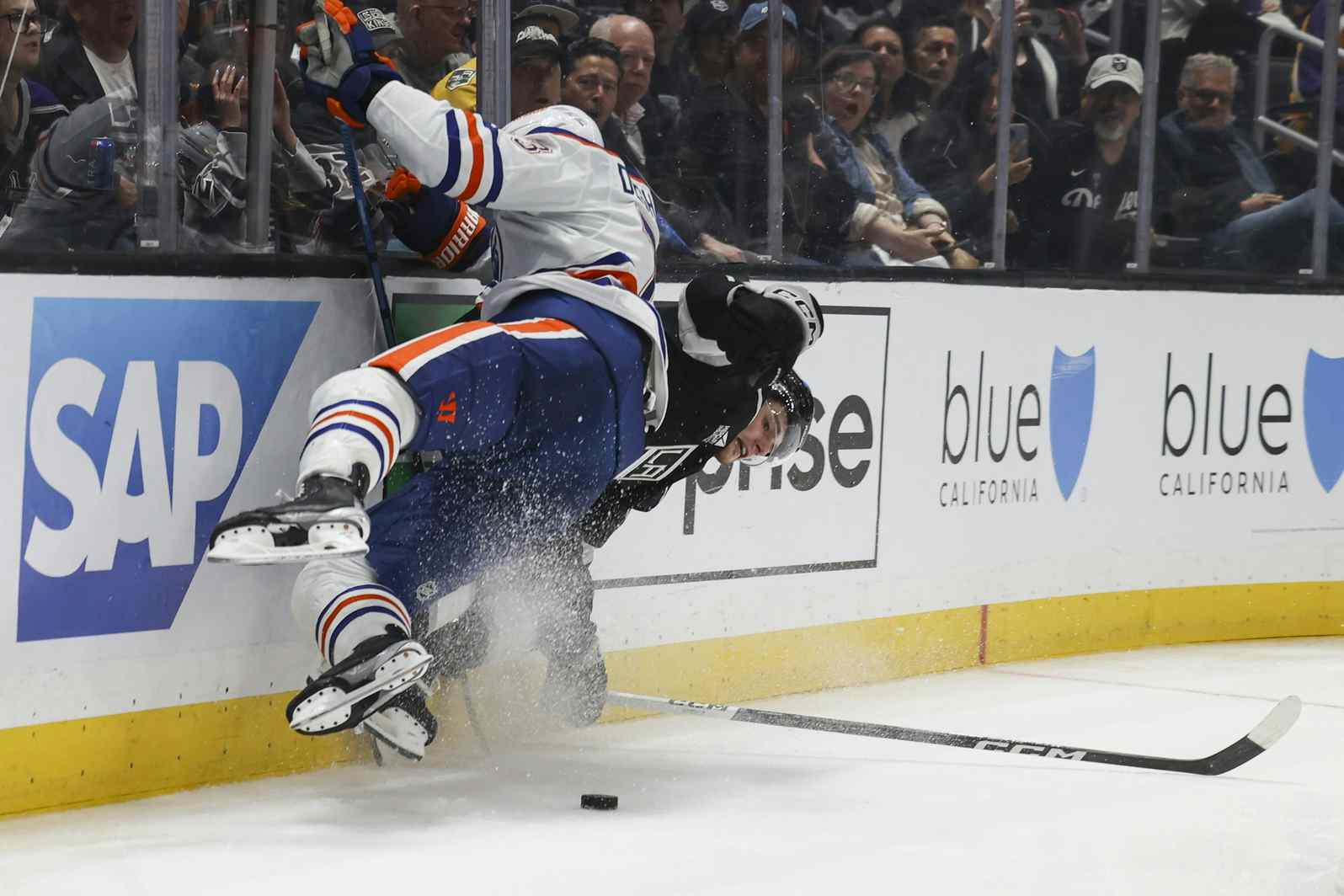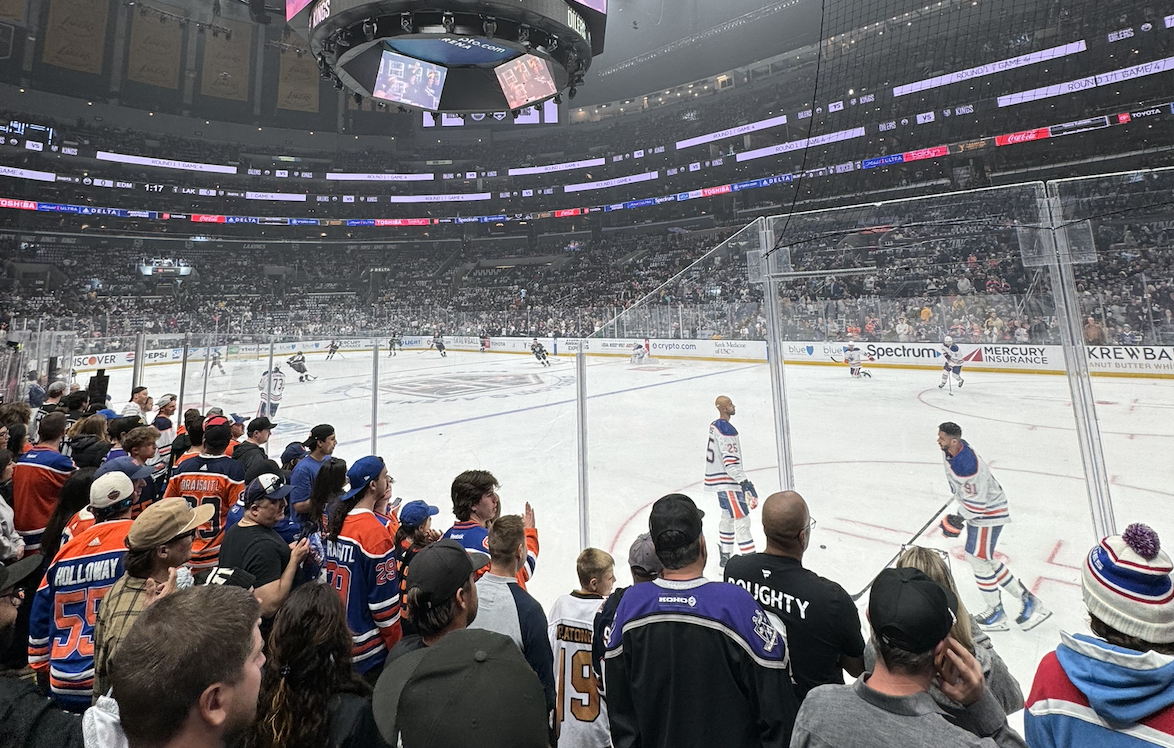The lessons the Oilers should take from Justin Schultz’s development

Justin Schultz has emerged as a focal point for much of the wrath directed at Edmonton’s ineffective blue line. Some of that is his fault; he lacks any kind of physical edge and has specific failings, particularly in the defensive zone.
Much of it, however, is the fault of an Oilers team that has done pretty much everything wrong in terms of how it’s handled the player. It isn’t Schultz’s fault the team encouraged unrealistic expectations, it isn’t his fault the team force-fed him minutes he wasn’t prepared to handle and he certainly didn’t hold a gun to the Oilers’ collective head and force the club to overrate him and underrate Jeff Petry.
It’s too late to fix those mistakes now. It’s not too late to learn from them.
Worth Reviewing

We spend a lot of time on this site debating the ways in which the Oilers can immediately improve their blue line, but the truth of the matter is that the future of the defence corps rests primarily in the hands of some key young players currently in the system.
Oscar Klefbom had a spectacular debut with Edmonton last season and has physical gifts that are impossible to ignore. Highly mobile, gifted with the puck and blessed with size and strength, Klefbom is a complete player and the kind of prospect that just doesn’t come along that often.
The really incredible thing is that Klefbom may end up playing second fiddle to Darnell Nurse. Nurse has the same sort of skating ability, but is bigger, meaner and may be even more effective offensively.
Right now, Nurse and Klefbom look to be the rocks that Edmonton’s blue line will be built around. A veteran like Mark Fayne, signed to a long-term deal, may end up being a complementary piece. So too might a second-tier prospect like Martin Marincin, or a still-young NHL’er like Schultz. But it seems likely that whichever of those players stick long-term will be around primarily as supports on a blue line anchored by Nurse and Klefbom.
That makes it of paramount importance that the Oilers do things right with those two players, and it also makes it worth figuring out what the team did wrong with its last shiny, can’t-miss defensive prospect.
Development

Development in hockey is one of those areas which gets broad attention but generally isn’t considered in particular depth, at least not publicly. Fortunately, a great deal of research has been conducted into the basic field of teaching people skills, and many of those principles can be expected to apply to teaching a young player the intricacies of the game. Consider the following, from the book How People Learn, put together by the Committee on Developments in the Science of Learning:
Humans are motivated to develop competence and to solve problems; they have, as White (1959) put it, “competence motivation.” Although extrinsic rewards and punishments clearly affect behavior, people work hard for intrinsic reasons, as well. Challenges, however, must be at the proper level of difficulty in order to be and to remain motivating: tasks that are too easy become boring; tasks that are too difficult cause frustration.
That last sentence is key: for optimal development, players need to be put in situations tough enough to challenge them, but not so tough that they are constantly failing.
It’s in line with the view expressed by Detroit Red Wings general manager Ken Holland to Jason Farris in the book Behind the Moves. Detroit has become the gold standard for getting the most out of its prospects, and Holland makes no secret as to why, citing lessons learned during his time as a minor-league player:
The minute a young kid would play well for six weeks, he’d get [called] up and [provide] a little bit of spark [to the parent club,] and then six weeks later they would [be sent back] down and they were just beaten up. The league was too tough. They couldn’t make a difference. It took you another few weeks, few months to get those players back to where they [had been] confidence-wise and playing-wise. So from a player-development standpoint – a personal-development standpoint – [I learned that] people are ready when they’re ready and [I learned about] the importance of building a foundation.
Let’s go back now to how the Oilers handled star defence prospect Justin Schultz:
- 2012-13: 21:26 TOI per game, second among Oilers defencemen
- 2013-14: 23:20 TOI per game, first among Oilers defencemen
- 2014-15: 22:36 TOI per game, first among Oilers defencemen
It was less of a “challenging but within the player’s grasp” situation and more of a “Justin Schultz, wolves; wolves, Justin Schultz” scenario. He stepped into the NHL and on to Edmonton’s top pairing immediately, and no matter how he’s struggled since he’s routinely logged 21-plus minutes per game.

Just for good measure, then-general manager Craig MacTavish made it clear that Schultz was expected to be not just a top-pairing defenceman, but a truly exceptional one.
“[Schultz’s] potential there is absolutely in that group [with Erik Karlsson and Kris Letang],” MacTavish said last summer. “I think that Justin has Norris Trophy potential and I don’t think that there are too many people who would disagree with me in that regard.”
Learning from Mistakes of the Past


The really frustrating thing with Schultz is that there really hasn’t been much progression in his game. His game has many of the same bugs that were evident during his rookie year; the lack of development from the player is a strong indication that the Oilers’ baptism-by-fire approach has been a mistake.
Which made MacTavish’s response this summer to a question about giving Klefbom some shelter as a young player all the more galling.
“When you talk about Oscar, I don’t think there’s one facet of the game where you can put him and hurt his development,” MacTavish said. “There are guys that I see that are just going to be really good players and potentially star players; I see that in him.”
Those decisions have since been taken out of MacTavish’s hands and handed to Peter Chiarelli, a veteran manager with an impressive track record. It’s going to be interesting to watch how he handles the young defencemen he has inherited.
Schultz’s experience offers some obvious suggestions. Bring players along gradually. Don’t pointlessly and unrealistically raise expectations. And when a player struggles, don’t be afraid to step down his responsibilities until such time as the struggles stop.
RECENTLY BY JONATHAN WILLIS
Recent articles from Jonathan Willis

